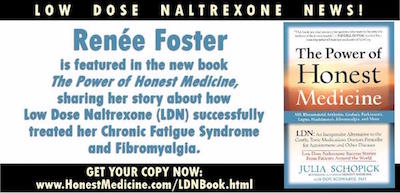PUBLISHED MARCH/APRIL 2019
by Julia Schopick, Author --

Julie Schopick
Active involvement in Facebook groups can help foster organic marketing and guide potential buyers to your book.
In my May/June 2018 column,
"Using Topics in the News to Get Your Important Messages Out", I described how John McCain's July 2017 glioblastoma diagnosis provided me with an opportunity to educate brain tumor patients and their families about innovative treatments their doctors might not know about--treatments that have helped some brain tumor patients live years beyond their doctors' predictions. I related how I posted an article on my website about four such treatments (
"My Husband Outlived His Prognosis by 12 Years. How His Experience Could Help John McCain and Others") and how I appeared on talk shows where I told audiences about these treatments. I then publicized both my article and my appearances in brain tumor Facebook groups.
I promised to follow that column up with a future column, sharing details about how to participate in Facebook groups so that other authors can successfully get your important messages out to the people you want to reach.
There are three major takeaways when using Facebook groups to promote yourself and your work:
- Participating in relevant groups without overt self-promotion, which is often prohibited or frowned upon.
- Promoting a book using Facebook--in this case, my recently published book, The Power of Honest Medicine.
- Using Facebook groups to obtain vital information.
How to Participate and Promote in Facebook Groups
If you are new to a particular interest group on Facebook, you need to approach it carefully. In my case, since I was relatively new to brain tumor groups, my approach was different than if I had been an active participant for years. It was crucial that I not appear overly aggressive or self-promotional. My first recommendation is to take an educational--rather than self-promotional--approach.
In the brain tumor groups, I commented more than I posted, often including links to my column and radio interviews. My comments were typically in response to posts where group members were asking for information about treatment alternatives beyond those recommended by their doctors, or when they needed encouragement to question a doctor's dire prognosis.
For example:
When one participant wrote, "My husband had a recurrence after [six] months … I need to hear some success stories," I posted the link to my article. She was appreciative.
Another group member questioned whether treating her mom's glioblastoma was just "postponing the inevitable." I again shared my article, pointing out that many people had survived their "inevitable" diagnoses by using the innovative treatments I was describing.
A mother shared that her daughter's neuro-oncologist said it was futile to treat her daughter's brain tumor because she would only live a maximum of two years. I posted a link to my column and told her that my husband lived 15 years after receiving the same diagnosis.
This method proved to be so successful that members of one group,
"Glioblastoma-GBM Survivors to Thrivers!" repeatedly posted my column, giving me credit.
In addition to taking an educational approach, it's also important to share information from other experts, rather than sharing only your own articles, books, and interviews.
So, when a person in the group referred to above asked about the ketogenic diet, I commented that "using this high-fat, low-carb, no-sugar diet for cancer has a lot of science behind it," and went on to cite six authors who have written books about the ketogenic diet as a treatment for cancer. I tagged each of the authors, giving them credit for their work.
Similarly, when a group member asked about repurposed drugs--another of the treatments I wrote about in my article--I linked to Ben Williams' documentary on the topic, "Surviving Terminal Cancer," and Jane McLelland's Facebook group,
"Off-Label Drugs for Cancer." Several times, when discussing Low Dose Naltrexone (LDN) for the treatment of cancer, I linked to Linda Elsegood's online video
"LDN and Cancer: The Game Changer."
In all cases, I remained professional, yet empathetic, without resorting to preaching.
Promoting a Book
In my September 2016 IBPA column,
"Taking to the Waves; Using Radio to Get the Word Out", I explained that while I was writing my first book
Honest Medicine: Effective, Time-Tested, Inexpensive Treatments for Life-Threatening Diseases, I knew I wanted to promote the book's publication with radio appearances. Similarly, while writing
The Power of Honest Medicine, I knew my main means of promotion would be through Facebook. I also knew I'd want to make the book attractive to international publishers. With these goals in mind, I involved Facebook groups in both the writing and the promotional processes.
Like
Honest Medicine, my new book features stories from patients who have successfully used the off-label medication Low Dose Naltrexone (LDN) to treat their autoimmune diseases. Whereas I was not active on Facebook while I was writing my first book, I had been active for several years before writing the second one.
I turned to the appropriate groups when looking for LDN success stories to include in the book. These groups were general, as well as disease-specific (e.g., rheumatoid arthritis, thyroid disease, etc.) and country-specific (e.g., Germany, Norway, the Netherlands, and Italy).
I posted announcements in these groups that I was looking for people to share their LDN success stories in my upcoming book. Since I was already well known in the LDN community--and in these Facebook groups--the response was stunning.
Several of the groups' administrators either contributed their own success stories or led me to others who did. Andrea Schwung, administrator of the German LDN Facebook group, and Emiliano Marchi, administrator of the Italian Facebook group, shared their own LDN stories. And Manda-Marieke Schuurer, administrator of the Netherlands LDN group, led me to Katrien Devresiere. Manda also helped translate Katrien's story. And Renee Foster, administrator of the largest general US LDN group (
"LDN Got Endorphins?") contributed her story, as did Linda Elsegood, administrator of the UK-based LDN Research Trust group.
[caption id="attachment_39224" align="aligncenter" width="400"]
 Schopick promoted Foster's contribution to
Schopick promoted Foster's contribution to The Power of Honest Medicine
via this Facebook graphic.
Not only were all their LDN success stories compelling, but because each of my contributors had been promoting the use of LDN in their own groups, they were equally dedicated to spreading the word about this book. So, most of them talked about it in their groups long before publication. Once the book was published, my editor, Mary Shomon--also a design whiz--created graphics for each contributor to promote participation in the book on his or her personal Facebook page, as well as in the groups in which they were active. European contributors translated the copy into their native languages.